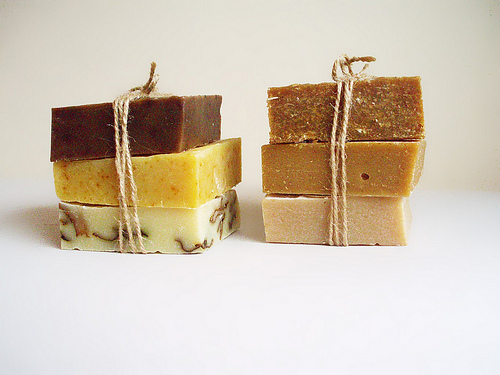Soapmaking trials
I think every crafter, hobbyist and DIY-er eventually gives soapmaking a try. That must be the case, at any rate, given how many soapmaking supplies are available for sale at your local Michael's and Joann's. In fact, they sell so much great soapmaking stuff that you barely have to do a thing. It doesn't seem like much of a challenge, is what I'm saying, which is probably why I tried to make it harder than I had to.
I have a lot of allergies, so I was excited at the prospect of creating a soap that I could use while knowing all of the ingredients that went into it. But the first thing I found was that a lot of the commercially available soapmaking products are just as bad as what you will find at the grocery store. Frankly, a lot of them seemed to be just melted-down versions of popular bar soap brands. Why bother?
Some of my soapmaking dreams were also crushed when I realized how difficult, time-consuming, and dangerous it can be to make cold process soaps. Cold process soaps are probably what you think of as "soap." It's soap that has a base of tallow, oil, or goat's milk. This process creates a rich, opaque bar of marvelous soap. It also requires you to use lye, which can give you a nasty chemical burn if you don't handle it right. (Just ask Tyler Durden.)
This leaves you with glycerin soap, which tends to melt quickly in water and leave a sticky, slimy, gooey puddle in your soap dish or on the edge of your bathroom sink. You can also buy "Melt and Pour" soapmaking supplies, but this will bump up the cost of your homemade soap beyond what you expected.
Soapmaking is something that I have banished to my "Maybe After I Retire And Need A New Hobby" list. Until then, I've decided to leave it to the professionals. When you get right down to it, a bar of Dr. Bronner's bar soap is not all that expensive, really!
Image courtesy of Flickr/pabadoo
